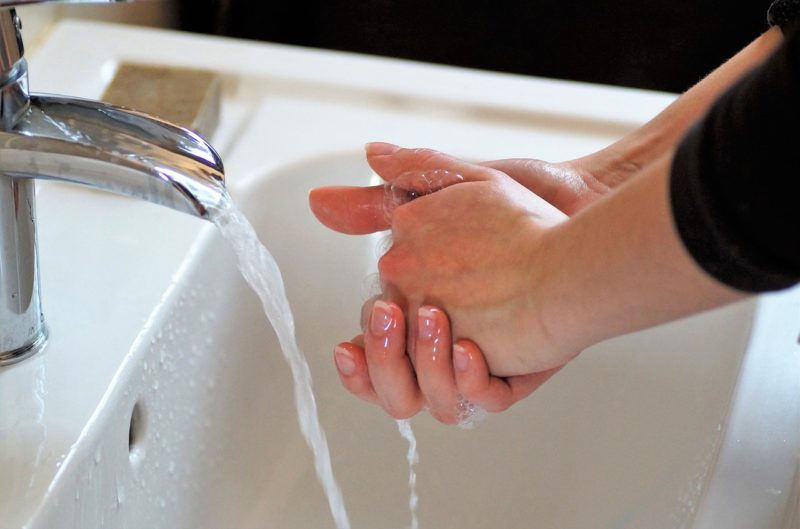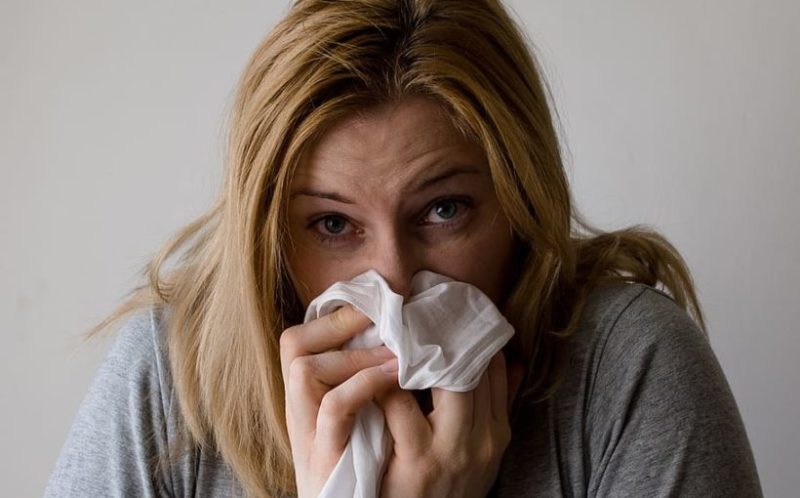The start of the new school year and the arrival of autumn with its many viruses should not scare you! With a healthy lifestyle, you’re armed against the common cold, but a few small gestures will be invaluable to protect your body and your loved ones. Get ready to fight the cold!
1. Get covered up!
The easiest way to protect yourself from viruses is to cover up. From head to toe, you need to think of everything. Like an onion, the different layers are superimposed in a precise order designed not to attack the skin and to let it breathe.
To begin gently, silk sticks perfectly to the skin, while cotton lets the whole thing breathe, and wool keeps you warm. Finally, a waterproof jacket prevents water and moisture from penetrating:
– Winter underwear: between $10 and $30.
– Warmers: between $2 and $4.
– Hat: about $5.
– Earmuffs: $2.
2. For warm feet
Feet are often the prey of frostbite or fungus. Indeed, the extremities remain very sensitive to cold. In addition, microbes proliferate in a humid environment.
So don’t let rainwater or snow get into your shoes, especially if you’re going to work all day without the possibility of drying yourself.
– Choose waterproof shoes.
– Double your socks (cotton and wool).
– Intercalate heaters between the two materials.
Good to know: hands, head, and feet exposed to the cold drastically reduce body temperature. With gloves, good shoes, and a hat (possibly an earmuff), the feeling of a cold quickly diminishes and becomes bearable.
3. Wash your hands frequently

Everyday hand hygiene remains essential to avoid the proliferation of bacteria. Indeed, our hands that touch countless things during the day transmit bacteria, germs, and viruses.
To maintain good hand hygiene, it is advisable to :
– Do not skip washing and drying your hands thoroughly after work.
– Regularly clean touched items such as telephones, door handles, and light switches.
– Use soap appropriate to your profession: hotels, restaurants, hospitals, or garages.
4. Eat and drink healthily
Contrary to popular belief, you can’t fight the cold with alcohol and even less with fat. We don’t need to eat more in winter. However, it is important to eat everything in reasonable quantities.
– fruits and vegetables (vitamins, minerals, and trace elements)
– slow sugars (rice, pasta);
– proteins (meat, fish);
– fiber (cereals, dried fruits);
– plenty of drinks (hot drinks, water, and fruit juice).
5. A good dose of vitamin C
When we are sick or weakened by the cold, we lose a lot of energy. This energy is not always compensated for during meals. Therefore, the body needs a minimum amount of vitamin C to defend itself.
If you can’t eat much, try fruit juices rich in vitamin C:
– Orange juice: 60 mg/half cup.
– Grapefruit juice: 47 mg/half a fruit.
– Tomato juice: 22 mg/piece.
Note: Studies show that vitamin C can reduce the duration of illness by half a day. From a preventive point of view, taking 1,000 mg of vitamin C per day during the winter reduces the incidence of colds by 45%.
6. Get vaccinated

The three vaccines against diphtheria, poliomyelitis, and tetanus are still mandatory from a young age. These vaccinations are repeated every 10 years.
In case of risk factors or if you are going abroad, you can also opt for the following vaccines:
– tuberculosis (BCG);
– Hepatitis A
– Pneumococcus (causes meningitis);
– rabies (especially after a bite)
– Influenza (renewed every year, recommended after 65 years of age);
– chickenpox (dangerous, especially for pregnant women)
– measles
– mumps;
– rubella (MMR).
7. Avoid people who are sick
Bacterial sore throat, for example, can reach your body very quickly. If your spouse or child has it, you run the risk of getting sick too. That’s why it’s essential to adopt a healthy lifestyle to avoid contamination.
– Make sure used tissues are in a closed wastebasket.
– Do not sleep in a contaminated bed. Wash sheets thoroughly beforehand.
– Don’t use the same cutlery and glasses as a sick person.
– Do not kiss a sick person.
– If there are cases in your child’s school, wash their toys and games.
8. An economical idea: auxiliary heating!
The temperature in a home should not exceed 19°C in winter. When you sleep, the ideal temperature drops to 17°C.
For those who are cold, a space heater can correct the temperature, provided that it is used correctly and avoid accidents (fires, carbon monoxide poisoning, etc.).
In addition, it will allow you to save on your gas bill for a sum of about $50, depending on the model!
The right gestures to create a warm and healthy atmosphere:
– sweaters, plaids, blankets instead of a full-blown radiator;
– do not block the air vents;
– close the doors;
– air at least half an hour a day.
9. Give yourself a sleep cure!
Sleep plays a significant role in the formation of bacteria. If you don’t get enough sleep, your body doesn’t have enough defenses to fight off external aggressions.
Good to know: one study showed that short sleepers (less than seven hours of sleep per night) were almost three times more likely to get a cold than those who slept more than eight hours per night
To sleep well:
– Avoid alcohol and tobacco, which are sources of stress.
– Eat light at night.
– Avoid television just before bedtime.
– Drink an excellent herbal tea with honey or a glass of warm milk.
10. Sport: your shield against illness!
Sport is an excellent way to feel better about yourself and to reduce the effects of cold. It promotes the transport of white blood cells to fight infections. In addition, physical exercise maintains good blood circulation, which guarantees the proper oxygenation and nutrition of body and brain tissues. You can alternate between a daily physical activity session, such as jogging, and a good hot bath. An indoor sport allows you to exercise without putting your nose outside:
– Indoor team sports: indoor soccer, badminton, volleyball.
– Individual indoor sports: combat sports, fitness, climbing, etc.
Good to know: yoga exercises and breathing also helps the body to feel better.
If you have a fever: what should you do?
First of all, cool off! Warm water lowers the temperature and evaporates on hot skin. But be careful, don’t put your head in the freezer! Cold increases blood pressure, which warms the body. Instead, opt for lukewarm, temperate water.
To cool down:
– Wet your sheet.
– Put a damp washcloth on your forehead.
– Take a warm bath.
– Drink plenty of water.
It is also recommended to drink hot water to sweat and stop the fever from rising:
– Drink linden flower, elderflower, or ginger tea.
– Add a little chili pepper to speed up the process.
By maintaining a balanced diet, you give your body the strength it needs to get through the winter with peace of mind.
Hope this post has been helpful to you. Please, remember to leave your comments in the section below.


